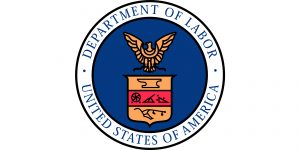The employment attorneys at Nardone Limited regularly assist our clients with labor and employment issues, such as Department of Labor compliance, as well as guidance on preventing and responding to discrimination and harassment charging affidavits filed with the Equal Employment Opportunity Commission (“EEOC”) and the Ohio Civil Rights Commission (“OCRC”). Our employment attorneys also regularly update clients on news, events, and changes in law as it relates to labor and employment issues that may impact our clients.
Introduction
This is the third blog in a three-part series, all addressing recent updates in April 2018, from the Department of Labor. Our first blog in the series addressed wage and hour compliance for non-exempt status employees while those employees are traveling. Our second blog in the series addressed a second DOL opinion letter also issued on April 12, 2018 with compliance advice regarding wage and hour calculations as it relates to employees that are entitled to rest breaks because of an FMLA-qualifying condition. And, this third, and final blog, addresses the DOL’s third April 12, 2018 opinion letter that provides guidance regarding whether certain lump-sum payments to employees are subject to garnishment orders served on employers.
DOL’s April 12, 2018 FMLA Opinion Letter
The DOL’s final April 12, 2018 opinion letter specifically provides clarity and guidance on whether a number of different types of lump-sum payments to employees are subject to garnishment under Title III of the Consumer Credit Protection Act (“Consumer Credit Act”). See Dep’t of Labor, Opinion Letter CCPA22018-1NA (April 12, 2018).
In the final April 12, 2018 opinion letter, the DOL noted that in determining whether a payment meets the definition of “earnings” under the Consumer Credit Act, the central inquiry is whether the employer paid the amount in question for the employee’s services. If so, the payment meets the definition of earnings under the Consumer Credit Act and may be garnished.
According to the final April 12, 2018 opinion letter, the following types of payments qualify as earnings under the Consumer Credit Act:
- commissions,
- discretionary and nondiscretionary bonuses,
- productivity or performance bonuses,
- profit sharing,
- referral or sign-on bonuses,
- moving or relocation incentive payments,
- attendance awards,
- safety awards,
- cash service awards,
- retroactive merit increases,
- payment for working during a holiday,
- termination pay,
- severance pay,
- workers’ compensation payments designed to replace wages, and
- back and front pay.
Thus, it is important for employers to keep in mind that garnishment orders can and do require employers to apply the orders against payments more broadly than just to payments that arise from traditional bi-weekly employee paychecks.
On the other hand, the letter advises that the following types of payments will specifically not be considered earnings under the Consumer Credit Act:
- reimbursements for medical expenses in workers’ compensation cases,
- compensatory or punitive damages,
- and buybacks of company shares.
Thus, employers should note that these types of payments are specifically not subject to garnishment orders. Furthermore, the lists and clarifications in the final DOL April 12, 2018 opinion letter confirms again, the determinative factor in deciding whether the payment falls under the Consumer Credit Act’s definition of earnings, which is whether the payment is compensatory in nature. (i.e., whether the payment is for the employee’s personal services).
Employer Takeaways
While the final April 12, 2018 opinion letter addresses a topic that employers likely spend less time worrying about than the topic of the first two letters—Wage and Hour law compliance—it certainly provides useful clarifications for employers. The overall takeaway from the letter for many employers should be that careful thought needs to go into considering and responding to garnishment orders. While Consumer Credit Act compliance issues are not at the forefront of employers’ minds, it is essential for employers to understand what types of payments are subject to a garnishment order under the Consumer Credit Act. After all, failure to ensure and understand compliance with the Consumer Credit Act can lead employers to face unnecessary and costly fines or penalties.
Contact Nardone Limited
The Nardone Limited employment attorneys handle a full spectrum of employment law issues, including business disputes and litigation, drafting of employment and restrictive covenants, and consultation on all types of employment law issues. If your business needs advice or representation on an employment dispute before the EEOC, the OCRC, or regarding potential employment litigation, contact one of our employment attorneys. Further, feel free to contact Nardone Limited if you would like more information or consultation regarding any employment law issue.
